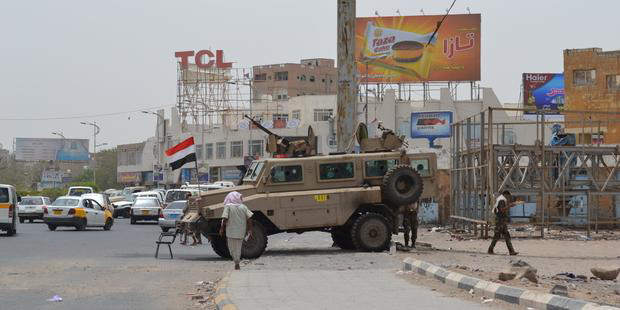Qatar: Reform Efforts Fail to Remedy Rights Abuses
Migrants, Asylum Seekers, Stateless People Remain Vulnerable

Migrant workers, asylum seekers, stateless people, and women in Qatar remained susceptible to abuse in 2019 despite new laws and regulations aimed at better protecting human rights, Human Rights Watch said today in its World Report 2020.
In October 2019, the government announced significant reforms that would allow migrant workers to change jobs and leave the country without employer consent. These are key elements of the kafala (sponsorship) system that tie migrant workers’ visas to their employers and that have enabled abuse and exploitation of workers. The reforms were expected to be rolled out in January 2020. However, other elements of the system that can leave employers with some control over their workers appear slated to remain.
“Qatar’s recent labor reform declarations, if carried out in full, would indeed mark a significant step toward reforming the exploitative kafala system,” said Michael Page, deputy Middle East director at Human Rights Watch. “But fully dismantling the kafala system will require ensuring that a migrant worker’s legal status – their entry and residence – is not tied to any specific employer, as well as decriminalizing ‘absconding’ – that is, leaving an employer without permission.”
In the 652-page World Report 2020, its 30th edition, Human Rights Watch reviews human rights practices in nearly 100 countries. In his introductory essay, Executive Director Kenneth Roth says that the Chinese government, which depends on repression to stay in power, is carrying out the most intense attack on the global human rights system in decades. He finds that Beijing’s actions both encourage and gain support from autocratic populists around the globe, while Chinese authorities use their economic clout to deter criticism from other governments. It is urgent to resist this assault, which threatens decades of progress on human rights and our future.
In November, Qatar entered the third and last year of its technical cooperation program with the International Labour Organization (ILO), aimed at extensively reforming migrant workers’ conditions. The government introduced several reforms over the past three years that, while positive, have not gone far enough; moreover, implementation has been uneven. By the end of 2019, the kafala system remained largely intact and continued to facilitate the abuse and exploitation of the country’s migrant workforce.
Qatar has also turned away asylum seekers, despite a 2018 refugee asylum law, and entire families arbitrarily made stateless starting in 1996 have remained deprived of key human rights with no clear avenues for reclaiming their revoked citizenship.
Stateless members of the Ghufran clan, whose Qatari citizenship authorities arbitrarily withdrew more than a decade ago, remained deprived of their rights to work, obtain health care, receive an education, marry, start a family, and own property, as well as their freedom of movement. In 2019, Qatar made no commitments to rectify their status.
Throughout 2019, the Interior Ministry’s search and follow up department repeatedly threatened two people with deportation on vague grounds despite their stated desire to seek asylum under the 2018 law.
Qatari laws also discriminate against women and lesbian, gay, bisexual, and transgender (LGBT) people. The country’s male guardianship system undermines women’s rights to make autonomous decisions about marriage and travel.
In 2019, Qatar’s isolation by Saudi Arabia, Bahrain, and the United Arab Emirates (UAE) continued to infringe on the right to free expression, separate families, and affect medical care and education. Travel to and from Qatar remained restricted, and the land border with Saudi Arabia remained closed.
“Qatar passes laws and regulations with great fanfare designed to protect labor and refugee rights on paper, but without effective implementation and strict enforcement, these laws aren’t worth the ink they are written with and people remain vulnerable to serious abuse,” Page said. “Qatar also cannot claim to champion human rights while the suffering of communities – like those made stateless – goes unheeded.”
Human Rights Watch



